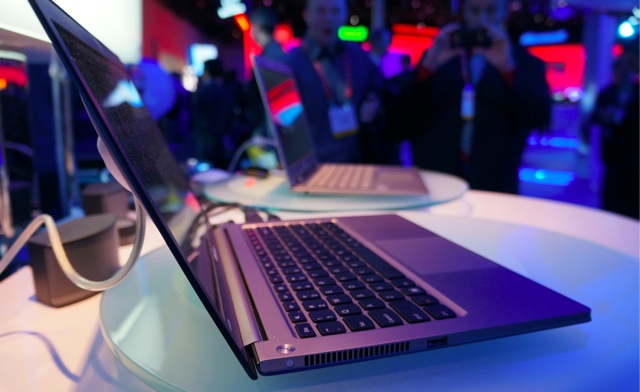
With the definition of what makes an Ultrabook becoming increasingly muddy these days, Intel has stepped in to provide more requirements for its new ultraportable laptop label in a blog post this morning.
Now in addition to thickness and 5-hour battery life standards, Ultrabooks must also include USB 3.0 or Thunderbolt for speedy access to external devices, include Intel Identity Protection and Anti-Theft technology, and they must also be “responsive while active,” which we assume refers to multitasking. These new requirements only apply to laptops running Ivy Bridge processors.
Today also marks the launch of the rest of Intel’s third-generation Core processor line, dubbed Ivy Bridge, with the debut of new dual-core and ultra-low voltage chips. Intel’s announcement comes more than a month after it first launched Ivy Bridge with its high-end chips — but in many ways the low-voltage models are more interesting, since they will power the Ultrabook revolution. (I’ve written at length about how Ultrabooks represent the future of laptop computing.)
It’s certainly nice to see Intel taking a firmer hand with the Ultrabook designation, as some manufacturers have started applying the term to laptops that aren’t exactly thin or light. If the term Ultrabook is to mean anything, Intel can’t allow manufacturers to apply it willy-nilly. Unfortunately, there still aren’t Ultrabook requirements for things like weight, price, and screen quality, but we’re hoping that Intel will be able to lay down the law within the next few years.
Via The Verge; Photo: Devindra Hardawar/VentureBeat

